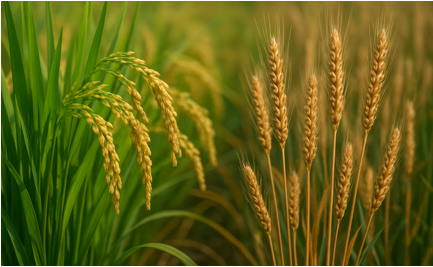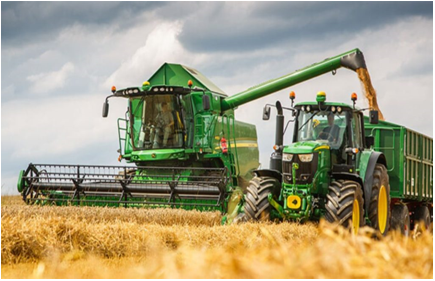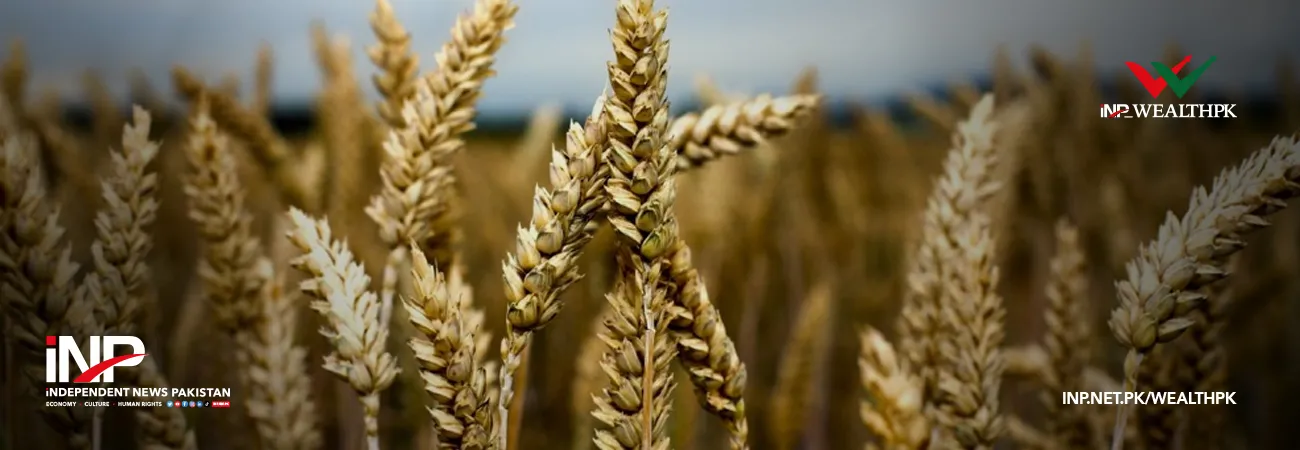INP-WealthPk
Ahmed Khan Malik
The Sindh government has launched a dedicated mechanization project to enhance rice and wheat cultivation in the province. The project will contribute in a huge way to food security in the country, reports WealthPK.

This new initiative, under the banner of sustainable agricultural development, is expected to bring transformative changes to the way rice and wheat are cultivated, harvested, and processed across the province.
The project, spearheaded by the Sindh Agriculture Department, focuses on the provision of modern machinery and technical support to farmers, particularly small and medium-scale cultivators, who often lack access to mechanized farming tools.
“As Sindh is a major producer of rice and wheat in Pakistan, the mechanization of these two staple crops holds the potential to significantly improve yield per acre, reduce post-harvest losses, and lower overall production costs,” Shahid Meerani, Director of Sindh Agriculture Department, told WealthPK.

According to Meerani, the project will initially provide subsidized machinery such as seed drills, laser land levelers, rice transplanters, combine harvesters, and threshers to farmers in key agricultural districts. This includes areas with traditionally high rice and wheat outputs such as Larkana, Dadu, Shikarpur, and Khairpur.
In addition to the equipment, the program will also include farmer training sessions, technical support, and workshops to ensure effective and safe use of machinery, he said. He said the move is part of a broader vision to modernize the province’s agriculture and ensure food sufficiency in the face of increasing climate-related challenges.
“Mechanization not only enhances productivity but also reduces the burden on manual labor and promotes timely sowing and harvesting, which is crucial for maintaining crop quality,” he said. Agriculturists commend the project and believe the timing of this initiative is critical. “With climate change affecting the rainfall patterns and water availability, efficient use of resources has become essential,” said Nusrat Jamali, a Sukkur-based agriculturist.
He added that mechanized tools, such as precision seeders and water-efficient irrigation systems, can contribute to climate-smart farming practices that not only sustain but also improve agricultural output. He said the project also aligns with the federal government’s broader agricultural reform goals, which emphasize digitalization, resource optimization, and farmer empowerment.
Additionally, the Sindh government is planning to collaborate with international organizations and private sector partners to expand the scale and impact of the mechanization drive. “This long-overdue step toward modernization will help them compete in an increasingly competitive market. With proper machinery, I can now harvest my wheat more quickly and with less waste,” Nusrat said.
The Sindh Rice & Wheat Mechanization Project is expected to be rolled out in phases over the next three years. The government aims to reach thousands of farmers and gradually transform the traditional farming methods into more efficient, productive, and sustainable practices. “If successful, this initiative could serve as a model for other provinces, ensuring that Pakistan's agriculture remains resilient and capable of feeding its growing population in the years to come,” Nusrat said.
Credit: INP-WealthPk













